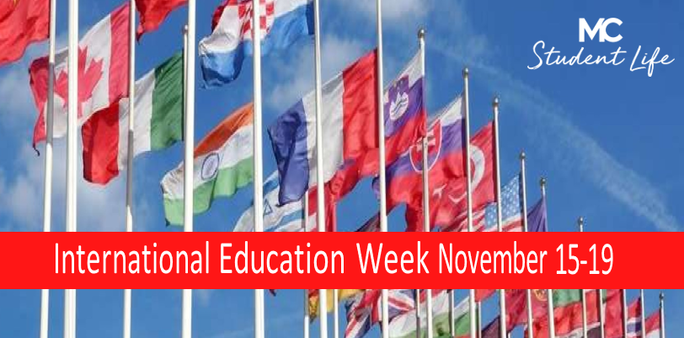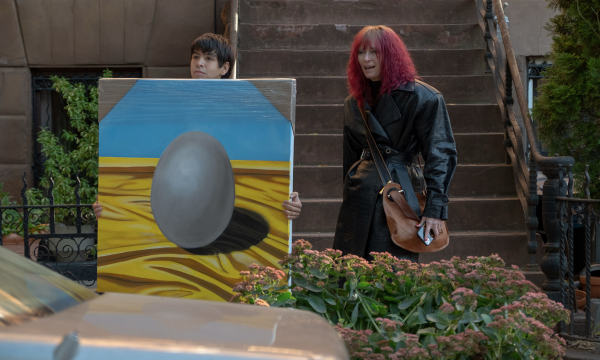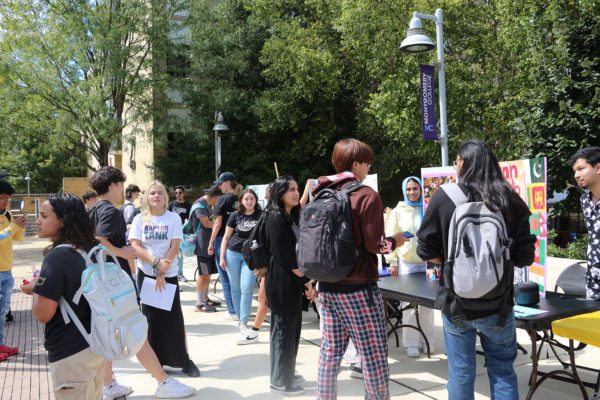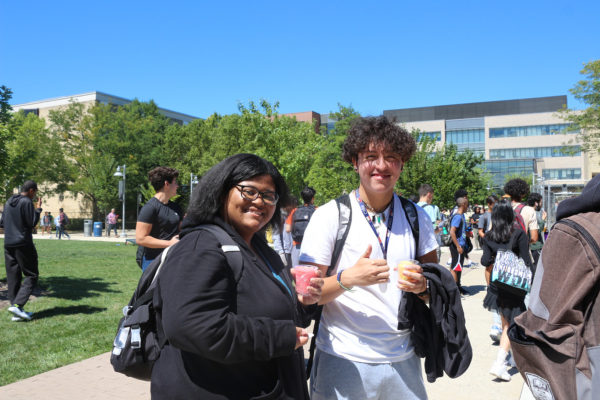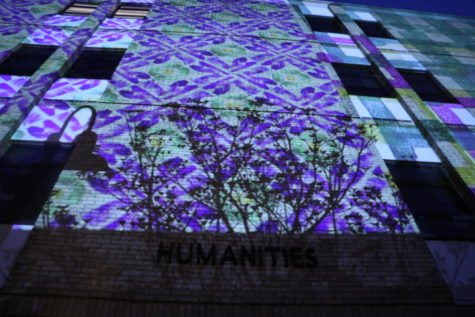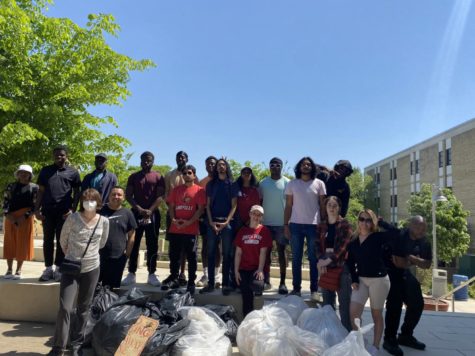Montgomery College’s International Education Week: “In Our Own Voices” a Conversation on International Student Experiences
Hearing the experiences of international students has the benefit of opening a person’s perspective. Such was the case at the “In Our Own Voices” event on November 17th. This event was part of Montgomery College’s International Education Week, which lasted from November 15th through November 19th. During this virtual event, MC students were able to hear the voices of fellow students: both international students and those with international experiences. These students came from Dr. Luna Esudero-Alie’s French and Spanish classes and shared what they had to say.
To start was Claudia B., who comes from the State of Bahia in Brazil. She spoke about how she moved to America six years ago (although she was originally born in the U.S. but moved when she was just one year old), and how her first challenging experience in America was with the functionality of showers. This emphasized how for many that first come to America, even the little things can prove difficult. There are many things she loves about the U.S., from relative safety to the opportunity to meet people from all corners of the world. Several students asked Claudia questions, leading Claudia to mention one thing she dislikes about the US: the working culture. This particular dislike would be mentioned again by a different student; it is something they see as consuming the lives of many Americans. Claudia gave the listeners a treat by recommending a Brazilian cuisine for people to try: coxinha (a savory fried dough ball stuffed with meat), which can be found at the Brazilian chain restaurant and steak house “Fogo de Chão” which has a location in Northern Bethesda.
After Claudia, we heard from Marie. K, who lived in The Gambia. She, like Claudia, was born in the U.S. but had to move back before she was two years old. She temporarily moved back to the U.S. in middle school but found it difficult to adjust to the different education system. It was only earlier this year that she moved back to the U.S., and disclosed some of her struggles since the recent move. Perhaps most notably was the religious struggle. Marie shared that in her view, practitioners of her faith, Islam, are more lenient in America. Marie believed this to be, in some part, amplified by the strong work culture in America. She pointed out that whenever she goes to the mosque on Friday, “…it’s just rushed, everybody in and everybody out because everybody has to go to work and other priorities to do.” The focus shifted to her experience in The Gambia, where Marie spoke about the attitude towards tourists. She mentioned that while the country is generally friendly, known as the “Smiling Coast of Africa,” there are certain individuals known as “bumsters”. These people take advantage of the naivety of tourists, especially non-black people. Despite this, the country is still quite amazing and friendly towards tourists.
Anthony M. was the next speaker, who is not an international student, but rather his family is from Trinidad and Jamaica. While he’s spent a considerable amount of time visiting Jamaica, he’s only visited Trinidad twice. He pointed out a similarity with The Gambia, in that scammers and the likes typically target tourists, especially Americans. Those types of people seemingly have an eye out for Americans, and despite Anthony’s fluency in Jamaican Patois, one such person was able to identify him as American “…because of the way [he] walked.” He does point out to keep a general eye out in terms of safety, although not all places in the country are homogenous in that nature. Despite this, he still very much enjoys Jamaica and highlights how much fun people can have while visiting there.
In addition to Anthony, students were able to hear from another Jamaican student, Angie. She was not presenting but was rather adding to what Anthony said with her own experiences. Their discussions mentioned the differences between city vs. “country,” or more rural aspects of a country. There are still shared aspects between Jamacia and the U.S., such as the Christmas holidays. Anthony pointed out that America is far more commercialized and outwardly expressed (especially with decorations being put out extremely early) than Jamaica. Jamaica’s focus for the holidays is closeness with family.
Lastly was Olga D., from Ukraine, and came to the U.S. in 2011 as part of a student exchange program. She came to the U.S. to meet new people and practice her English, though upon her arrival realized her language skills were not the best. In her own words, she felt akin to a dog, as she could understand people but not efficiently reply to them. In addition to the difficulties of formulating accurate responses, American slang was a surprise to her. The best example of this was when she described how someone at her workplace walked by, saying, “How are you doing?”, as she was ready to give a longer response, he continued to walk away. It was only afterward that she realized that in America when you’re asked, “How are you doing?”, legitimate feedback is not expected, but rather simpler answers such as “I’m good.” She juxtaposed this with her experience in Ukraine, as people would not ask that at all if they didn’t care for a genuine response. It’s a cultural custom that people don’t ask how a stranger is doing and will only say something important or relevant. She related to what Anthony expressed about the Christmas holidays. As in Ukraine, holiday decorations are not put out until the week of, rather than a month early like in the U.S. Shifting to a lighter note, she pointed out that she was initially mildly irritated when people would make eye contact and smile at one other in the U.S. Back in Ukraine, doing so is not only considered weird but even rude. Olga also stated how in the U.S., there are fewer societal expectations, an element of freedom that she enjoys more.
The opportunity to hear the experiences of international students, both in the U.S. and abroad, can aid in crafting a more diverse and open-minded perspective. Participants of “In Our Own Voices” certainly walked away with a greater appreciation for customs and cultures different from their own. With such a diverse population, MC’s student base is delightfully filled with people from all walks of life, and the International Education Week provided a wonderful celebration of these students.


